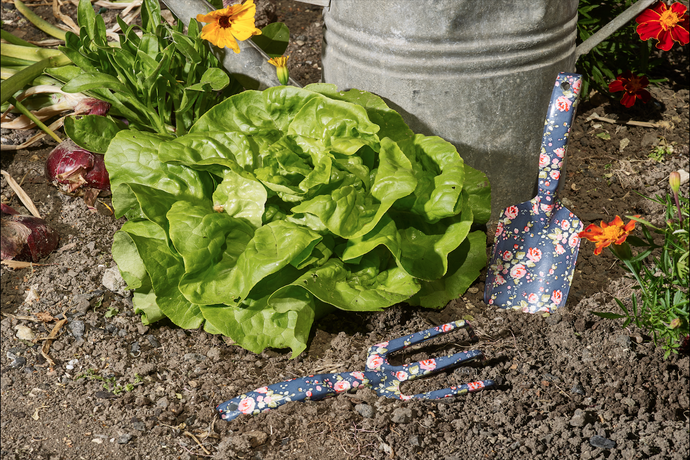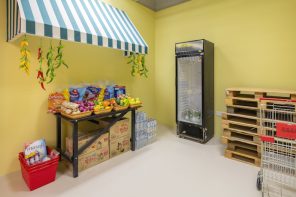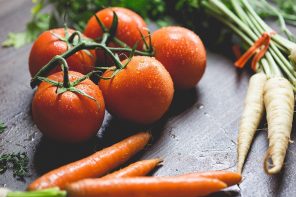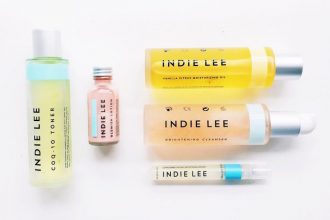Everything you need to know about growing your own vegetables in Dubai.
My Green Chapter is an online garden center based in the UAE, focused on urban farming, both indoor and outdoor. They offer a trendy and unique selection of products from vertical gardens to grow lights, beautifully designed planters, colourful chicken coops and much more.
They also provide a comprehensive range of garden products and accessories including organic potting soils and seeds at very affordable prices and Bokashi bins for turning household waste into compost without any odour.
As this is the ideal weather to grow veggies, Yana Samir (mylittlegardenindubai.blogspot.com) on behalf of mygreenchapter.com has very kindly shared handy tips with us on how to start your very own veggie patch at home.
![]()
Start at the right time
The UAE’s summer months may be harsh, but the longer, cooler season makes up for that. To ensure the seeds you sow come to fruition, remain mindful of season-appropriate vegetables. Broccoli, cabbage, root crops, and herbs can be started in October and November. Save crops that are sensitive to heat for end November, or even beginning December – like spinach and lettuce. To keep your garden lusciously green in the summer – work with warm weather produce like tomatoes, cucumbers, pumpkins, courgettes and corn. Time your harvests wisely – sowing your seeds early on so your veggies are ready for harvest before the heat kicks in. A general rule of thumb for most crops is to plant your seeds in October/November. Some plants, like radishes and lettuce, can be sown in succession.
Use appropriate soil
Treat your plants to rich soil and good nutrition. You can either buy potting soil or create your own by combining equal parts of sand, compost, perlite, and peat moss/coco peat. This mix provides all the necessary components of good soil: drainage, water and nutrient retention, and good texture. Whether you mix your own soil or buy it pre-mixed, it is essential to add organic slow release fertilizer. You can use manure as well, just ensure it’s well aged, and work it into the soil two weeks before planting.
Use organic liquid fertilizer every couple of weeks, which is essential if you’re growing in pots. Using seaweed extract is also wonderful. You can practice with this schedule: you can alternate weekly between seaweed extract and liquid fertilizer such as fish fertilizer. These can be either sprayed or watered into the soil, just ensure your plants are thoroughly watered before adding any fertilizer.
Be wise with water
Now that it’s winter, your plants don’t need to be frequently watered. When watering them, opt for early morning instead of in the evening. Nighttime weather can be foggy which leads to undesired humidity. Watering your plants at night could lead to plant diseases and disorders due to increased humidity. Only newly potted plants, germinating seeds, and freshly sown seeds require daily watering. Established plants need to be watered less frequently – which encourages deep root growth. This will not only make them stronger but will also train them for the upcoming summer heat.
Make practical crop choices
Take advantage of the UAE’s pleasant winter months by growing veggies you love to eat. Herbs and tomatoes are popular choices, but don’t shy away from trying new crops and alternatives to your favorites. For example, try growing chard as an alternative to spinach. Give Asian vegetables a try – they grow well and can be used in many ways. Most of your favourite crops can be started from seed. Practice succession planting, so you can harvest longer. Radishes, lettuces, beans and spinach are good options for this. Use some crops such as herbs, leafy greens and leaf lettuces, as cut and come back and enjoy them for longer as well.
Watch the weather forecast
Don’t water your plants if rain is underway, too much water is worse than too little. If you’re growing in pots, make sure the drainage holes are not blocked. Avoid water logging the base of your plant pots with water. Excessive water can lead to stagnation at the base of your plant, causing rotten roots. To unblock any blocked holes, simply tilt your pots to the side and push into the holes gently. Use a pencil, but be gentle. If you’re just planting, place broken pottery or pebbles at the bottom. Choose your location wisely; heat and sun loving plants, such as cucumbers and tomatoes, can grow in full sun, whereas lettuce, spinach, carrots and most herbs will benefit from partial shade. You need to be prepared to provide some shade during hot spells; shade netting can help with this. However, if you’re growing in pots you can simply move the pots into shaded area as needed.
If you’re growing cold-sensitive plants, like cucumbers, protect them from the chilly weather at night by using sheets.
Plant flowers to attract beneficial insects and pollinators to your garden. Use companion planting to deter pests and protect your crops. If a pest attack strikes – use neem guard or a homemade spray made with garlic, neem oil, a drop of soap and water.
Most gardening supplies like potting soil, fertilizer, pots, neem guard, and other essentials can be bought online from mygreenchapter.com
Join our WhatsApp group and receive curated news and offers in your WhatsApp Feed














